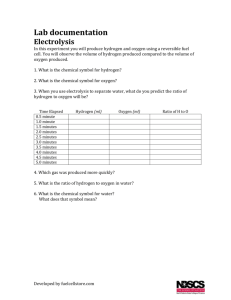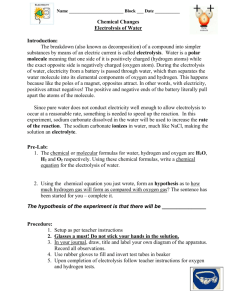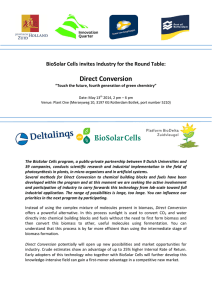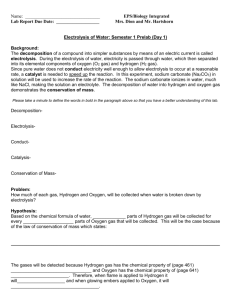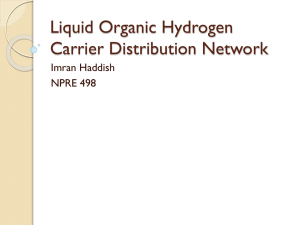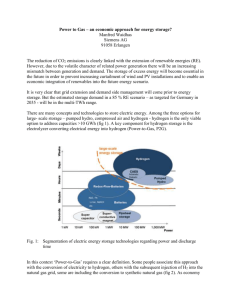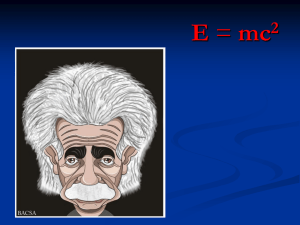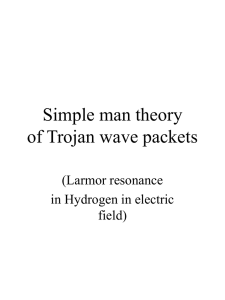Hydrogen Production - The University of Toledo
advertisement
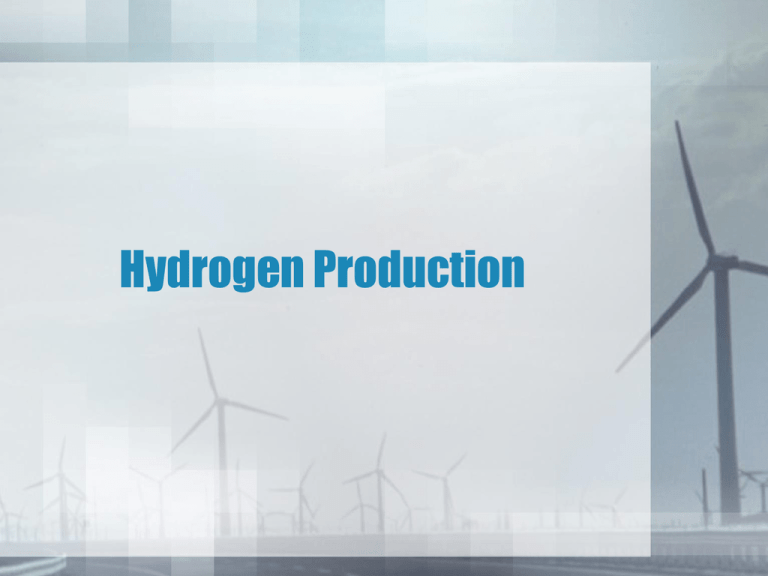
Hydrogen Production Sources of hydrogen • Hydrogen is one of the most abundant element in the universe. • It can be produced from various sources as 90% of the materials contains hydrogen atoms. • Water is an important source for hydrogen production using electrolysis. Sources of Hydrogen •Fossil Fuels are the cheapest sources available today •However, in the future there is going to be a transition to renewable sources. Hydrogen Production Technologies Steam Reforming • Here, a hydrocarbon gas, often methane, is mixed with steam at a high temperature and pressure, in the presence of a catalyst, to produce hydrogen and carbondioxide. The hydrocarbon gas can also be produced from biomass products by heating to high temperatures with little oxygen present (gasification). Hydrogen Production Technologies Partial Oxidation Hydrogen can be produced by reacting heavier hydrocarbons such as oil, coal, and some biomass products, with oxygen and steam. This is a commercially available process and is of interest for countries with large coal resources. Hydrogen Production Technologies Electrolysis An electric current is used to split water into hydrogen and oxygen. Alkaline electrolysis, the most common form, has been used industrially for over 80 years, but is now used on a large scale only where cheap electricity (e.g. from hydroelectric schemes) is available. There is also another kind of electrolysis called PEM where a solid polymer is used as electrolyte Hydrogen Production Technologies Biological Methods • Several types of algae and bacteria can produce hydrogen by photosynthesis or by fermentation. Some methods may have commercial potential, but most are at the R&D stage. Photo electrolysis This is the most ideal and natural way of hydrogen production without using fossil fuels where solar cell is used that splits water directly without electricity http://www.minihydrogen.dk/catalog/teachanimations.php?osCsid=ljs41n4ko7ihki0i nfje4guvr4
